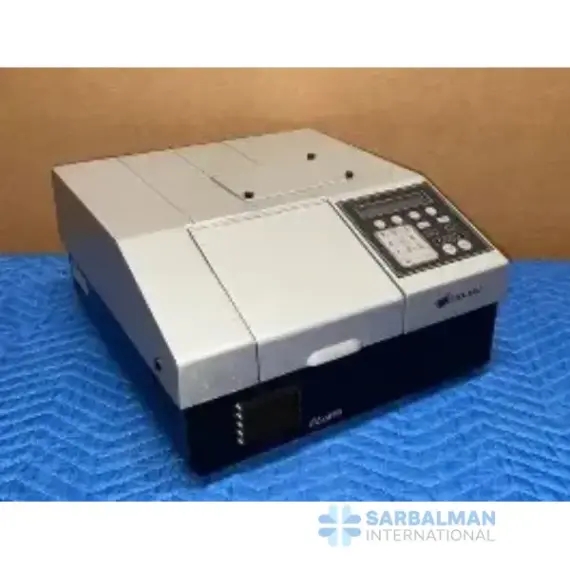Microplate Reader
Free!
A microplate reader measures absorbance, fluorescence, or luminescence from samples in multi-well plates. It speeds ELISA, enzyme kinetics, and cell-based assays while improving consistency and throughput. With temperature control, shaking, kinetic reads, and flexible optics, it delivers reliable results for research, diagnostics, and quality control. Choose filter optics for sensitivity or monochromators for wavelength flexibility—either way, you get fast, reproducible data in a compact, low-maintenance system.
Description
A microplate reader is a bench-top instrument that measures optical signals from samples arranged in 6- to 1536-well plates. It detects absorbance, fluorescence, or luminescence to quantify analytes, enzyme activity, cell viability, and reporter signals. Readers automate repetitive measurements with precise optics, motorized plate handling, and software for endpoint, kinetic, and spectral scans—delivering fast, reproducible data for screening and routine assays.
Key features and benefits:
• Multi-mode detection (absorbance/fluorescence/luminescence) for broad assay coverage
• Compatible with 96- and 384-well plates; selected models support higher densities for screening
• Temperature control, orbital shaking, and kinetic reads for enzyme and cell-based assays
• Monochromator or filter optics: choose monochromators for flexibility, filters for maximum sensitivity
• Pathlength correction and auto-ranging improve accuracy across varying volumes
• Intuitive software with curve fitting, standard templates (e.g., ELISA), and audit trails
• Small footprint and low maintenance for crowded benches and teaching labs
Common applications:
• ELISA and immunoassays for diagnostics and research
• Protein and nucleic acid quantification; enzyme kinetics and inhibition studies
• Cell proliferation, cytotoxicity, and reporter gene assays
• Food, environmental, and pharmaceutical QC testing
• Education and method development where fast iteration matters
Comparison notes:
Compared with single-sample spectrophotometers, a microplate reader processes hundreds of wells in one run, cutting hands-on time and variability. Versus high-content imaging systems, it offers simpler operation and faster throughput for intensity-based assays at a lower cost. Choose filter-based optics for weak signals or luminescence; select monochromator systems when you need rapid wavelength changes and assay flexibility.
Quality and compliance:
Units can be supplied for research use or configured to support in-vitro diagnostic workflows with documentation suitable for ISO-driven environments and laboratory accreditation programs. Routine calibration and verification plates help maintain traceable performance.
A versatile microplate reader accelerates workflows, increases data quality, and scales easily from small projects to high-throughput screening.




